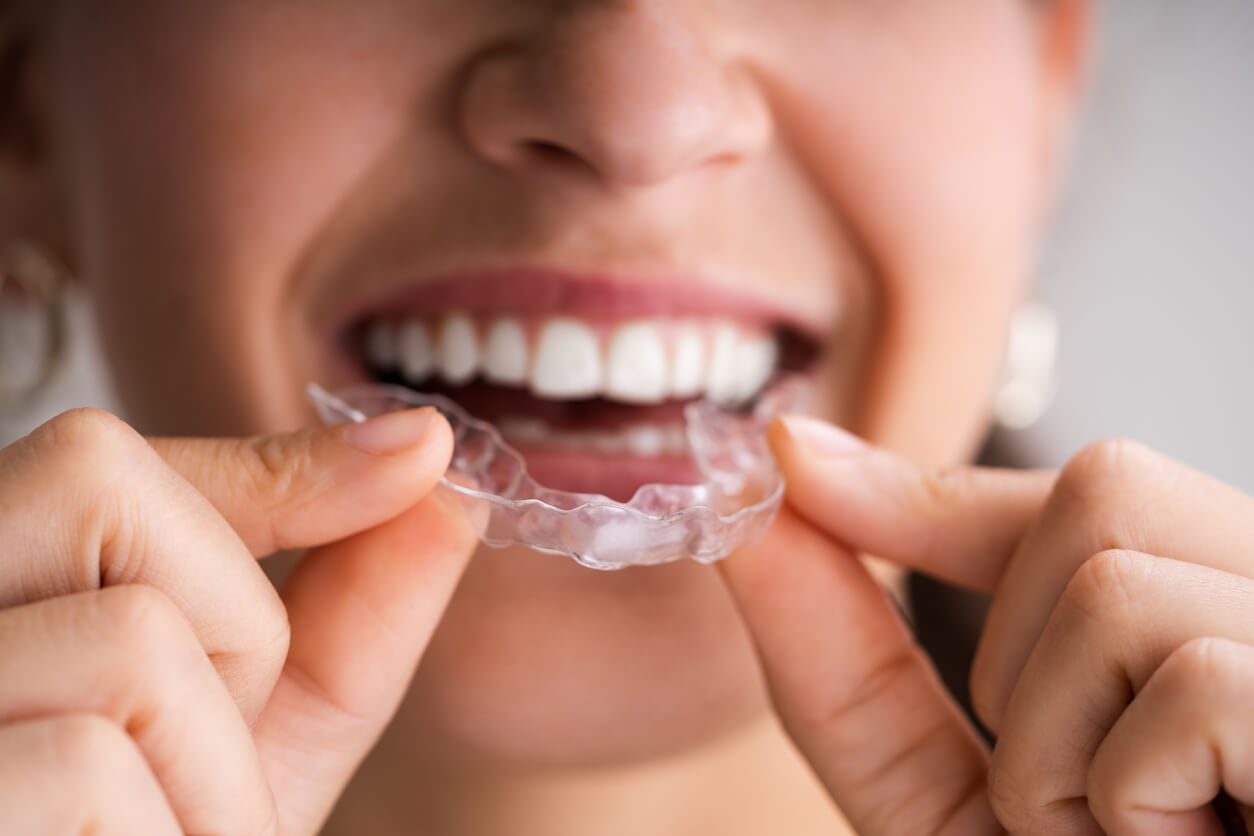How can I tell if I am grinding my teeth in my sleep?
Are you finding that you are waking up in the morning with a dull headache or maybe an earache? Is your sleeping partner complaining about the noise in the night from you grinding your teeth? You’re not alone. The American Dental Association (ADA) Health Policy Institute recently conducted a survey that found that dentists are seeing a 70 percent increase in reports of bruxism, which is the technical term for grinding or clenching your teeth.
This same ADA study also reported that the dentists involved reported marked increases in cracked and chipped teeth, jaw pain, headaches, and TMJ (temporomandibular joint) issues. While additional research remains to be done, the current increase is believed to be related to the COVID-19 pandemic, with its accompanying fear of infection, isolation, and financial stressors.
Bruxism, whether related to global health concerns or not, has always been a significant issue for those affected by it. It can happen while the individual is awake but usually occurs at night and may be accompanied by other sleep disorders, such as snoring and sleep apnea.
As many as a third of all children grind their teeth, especially while sleeping, but for most of them, this is something that they tend to grow out of. For adults, bruxism is often a problem they are unaware of until teeth are damaged from the repetitive grinding or TMJ problems begin to show up.
You may or may not need treatment for bruxism, depending upon the severity and whether it is an ongoing issue. Stopping the grinding before it gets to the point of doing damage is, by far, the best course of action, so it is important to recognize the symptoms and risk factors.
Symptoms of Bruxism
- headache, typically a dull aching beginning in the area around the temples
- earache-like pain that is not related to the ear
- tight or tired feeling muscles in the jaw
- soreness in the face, jaw, or neck
- complaints from those nearby that noise from teeth grinding or clenching is so loud that it wakes them up
- teeth that are loose, chipped, flattened, or broken for no known reason
- enamel on teeth noticeably worn in certain spots
- increasing sensitivity to hot and cold beverages or foods, as well as to pressure
- unexplained cuts and sores on the inside of the cheek
- partially or completely locked jaw
- waking multiple times during the night
Risk Factors for Bruxism
There are a variety of factors that can contribute to the development of bruxism. Some of the most common include:
- stress
- personality type – particularly type “A” personalities
- medications
- smoking
- alcohol
- caffeinated beverages
- recreational drug use
- genetics
- mental health
- Parkinson’s disease
- dementia
- sleep apnea
- GERD (gastroesophageal reflux disorder)
- ADHD (attention-deficit/hyperactivity disorder)
It is becoming increasingly apparent that stress is a primary suspect when it comes to teeth grinding and clenching. There are a lot of ways to manage stress, and it is important to do so for your overall health and well-being. That said, your dentist is your best ally when it comes to correcting bruxism and preventing further and possibly more serious damage. You should not wait to have your stress or any of the other risk factors under control before consulting with your dentist.
If you have questions about any of our services, whether dentistry or aesthetics, Cohen Dental Care is dedicated to delivering the highest quality services possible. We offer the latest and most current information and services to our patients with a new state-of-the-art facility in Forest Hills, Queens. Patient comfort, individualized care, and complete satisfaction are our priority.
For more information or to schedule an appointment, you are invited to use our online form by clicking here.

